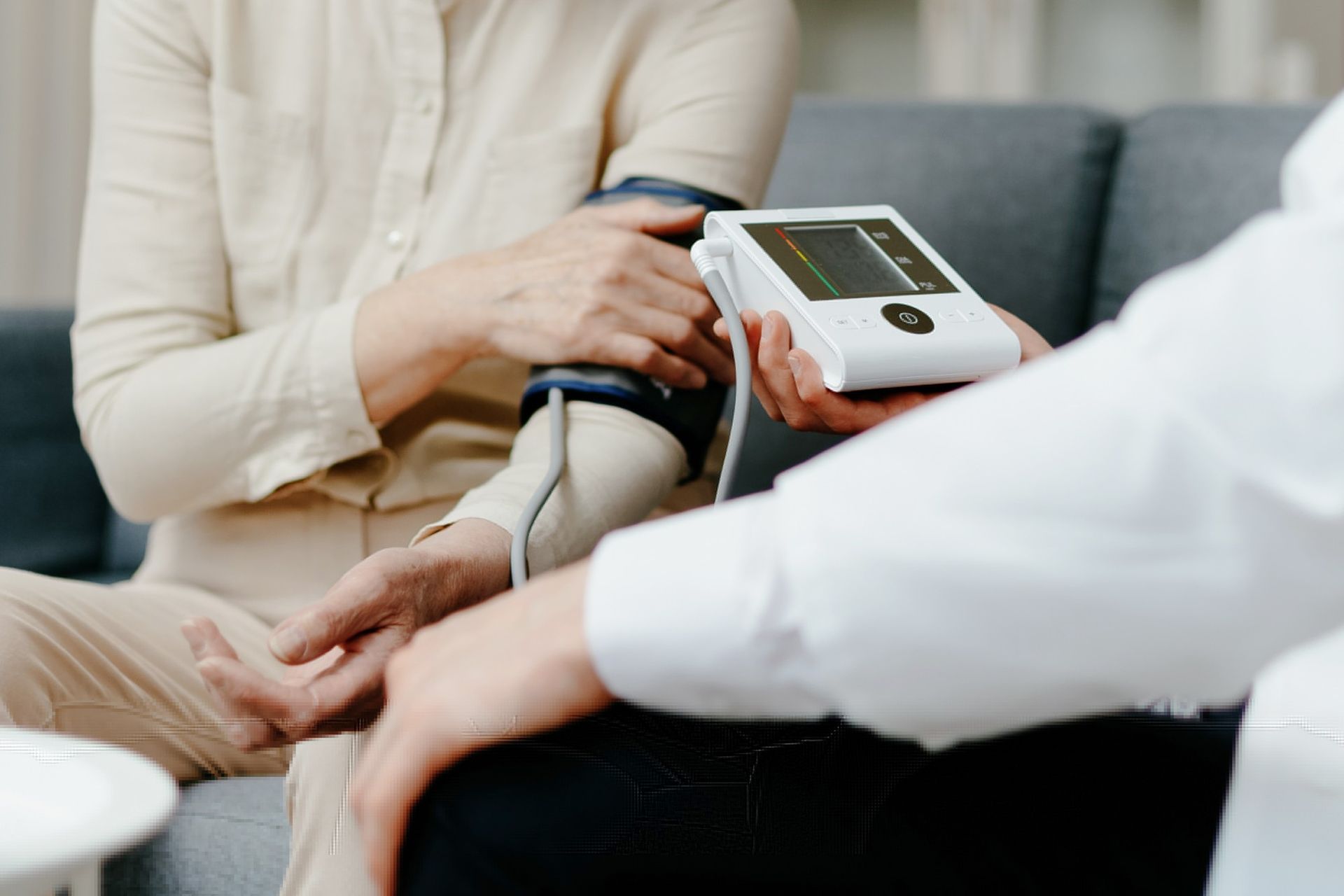Most of us are probably guilty of treating annual check-ups as just another skippable item on our to-do list, especially for women juggling various responsibilities. We may have overlooked our overall health this way, but it’s never too late to show up for annual check-ups.
Your annual physical exam is the cornerstone of a long and healthy life. It helps you stay several steps ahead of possible illness and empowers you to take control of your health.
Whether you’re a rookie to these yearly visits or a seasoned pro, knowing what to expect from your women’s health check-ups (also known as well-woman exams) can transform your experience from a simple routine to an empowering journey. Here’s a comprehensive look at what happens during your annual check-up and why it’s crucial for your overall health.
Prioritize Your Health and Well-Being
The Importance of Annual Check-Ups for Women's Health
Scheduling a
well-woman visit once a year is an excellent way to take care of your reproductive health and stay ahead of potential health issues. These annual check-ups for women are usually done by a gynecologist or obstetrician, nurse practitioner, midwife, or another healthcare professional specializing in women’s health.
Well-woman visits focus on preventive care, which includes:
- Vaccinations
- Physical exams
- Screening tests
- Education and counseling
Preparing for Your Appointment
It’s essential to be well-prepared for your
well-woman exam. If you feel anxious or worried, reassure yourself that going to your appointment benefits your health much more than not going at all. Knowing what and how to prepare for your appointment also helps alleviate any apprehensions you may have. For a more worry-free and straightforward visit, be sure to:
- Bring your medical history.
Gather any relevant information, such as your family health history, medication history, and other records from your previous doctors. Providing your healthcare provider with your complete medical history will help them personalize care and deliver what works best for you.
- Prepare a list of questions.
Write down any questions or concerns you want to discuss with your healthcare provider, such as birth control options, menstrual issues, or health goals.
- Know your medications.
Bring a list of your current medications, including over-the-counter drugs and supplements.
- Avoid certain products before the exam.
Avoid using vaginal creams, tampons, or douches for 24 to 48 hours before your appointment. These products can interfere with test results, especially during
STD screening or a Pap smear.
- Dress comfortably.
You’ll likely need to change into a gown for a pelvic exam, breast exam, or other screenings. Wearing comfortable and easy-to-remove clothing will make the process smoother.
- Plan for follow-up care.
Your doctor might advise follow-up tests and check-ups after your exam. Remember that being mentally prepared for any recommendation from your doctor is as important as feeling confident that you’re taking proactive steps to stay healthy. Keep in touch with your doctor’s office until your next medical appointment.
What to Expect During Your Check-Up
1. Vital Signs and Physical Exam
Measuring your height, weight, pulse, and blood pressure is the standard practice once you enter the clinic. These measurements help monitor your general health over time. The physical exam typically includes checking your heart, lungs, and abdomen to ensure no visible abnormalities or changes are overlooked.
2. Thorough Medical History Review
Your doctor will thoroughly review your medical history, including your family’s. Be prepared to discuss the medications you’re taking, hereditary illnesses in your family, and other recent healthcare changes. This is also your chance to bring up any concerns or symptoms you’ve noticed.
3. Pelvic Exam, Pap Smear, and HPV Testing
A pelvic exam is crucial for assessing your reproductive health. During this exam, your doctor will check for abnormalities in your cervix, uterus, and ovaries. If they see any unusual cells, they will recommend you undergo a
Pap smear. Women aged 21 to 65 must take this test every 3 to 5 years, depending on their health history. Your doctor may also suggest an HPV test to detect the presence of the virus that can lead to cervical cancer.
4. Breast Examination
Breast health is often the key concern during these annual check-ups. Your healthcare provider will perform a clinical breast exam to check for lumps or abnormalities. If you are over 40 or have a family history of breast cancer, you are required to take a mammogram.
5. Hormonal Health Discussion
Hormonal changes are a significant part of women’s health. Whether you’re experiencing menopausal symptoms, irregular periods, or other hormonal shifts, your doctor can help you manage any hormone-related concerns. You may need to undergo some blood tests to check your hormone levels and address issues like heavy periods or hot flashes.
6. Vaccinations
Your doctor will review your vaccination status and may recommend the following vaccines:
- Annual flu shot
- HPV vaccine for younger women
- Shingles vaccine for women over 50
- Tetanus-diphtheria booster every ten years
7. Additional Screenings and Preventive Measures
Preventive screenings can help you stay on top of your health and catch potential problems before they become serious. Some of these tests may include:
These tests aim to check your cholesterol, blood sugar, and other important markers.
Your doctor will ensure you’re up-to-date on
vaccines like the flu shot or HPV vaccine.
Women approaching menopause are at higher risk of osteoporosis. If you are over 50 or have risk factors, you must undergo a bone density test to assess your bone health and prevent fractures.
A colonoscopy or other tests may be recommended to screen for colon cancer, especially if you are over 45 years old.
For some women, annual check-ups can feel intimidating. If you feel anxious during your visit, don’t hesitate to talk with your doctor. They can reassure you that you’re doing the right thing, helping you feel more comfortable and informed throughout the process.
Lifestyle and Wellness Tips for Women
Getting a clean bill of health often makes people feel a little complacent, but always remember to continue nurturing your wellness after your well-woman exam. Here are some lifestyle and wellness tips that you may follow after your check-up:
- Follow up on your doctor’s recommendations.
Take your prescribed medications and adopt lifestyle adjustments that your doctor suggests, such as diet changes or exercise plans.
- Maintain a balanced diet and regular exercise.
Limit your intake of processed foods and sugary drinks. Focus on whole foods such as fresh fruits and vegetables, whole grains, and eggs. Incorporate healthy eating with regular exercise.
- Get enough sleep and rest.
Quality sleep is essential for hormonal regulation and overall health. Establish a consistent sleep routine by sleeping and waking up at the same time each day, limiting your screen time, and creating a relaxing bedtime ritual.
- Take care of your skin.
Wear sunscreen daily, stay hydrated, and choose nourishing skincare products to maintain healthy, glowing skin.
- Monitor hormonal changes.
Stay in tune with your body and be aware of any mood, energy levels, or physical symptoms changes.
Empowering Women's Health Through Well-Woman Exams
Remember, your annual check-up is an opportunity to take charge of your health. It’s your chance to tackle any concerns, detect potential health issues, and collaborate with your healthcare provider to keep your wellness on track.
Here at
Houston Family Practice, we are committed to helping every woman enhance their quality of life through well-woman exams. Our healthcare team will provide a customized care plan for your unique health needs. From preventive screenings to developing a health plan, we are with you at every step toward your journey to better health.
Call (713) 520-6016 to schedule your well-woman exam now.
Receive a Customized and Quality Care















